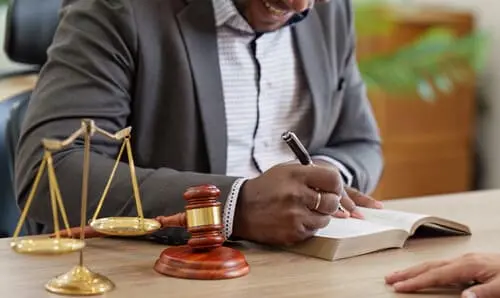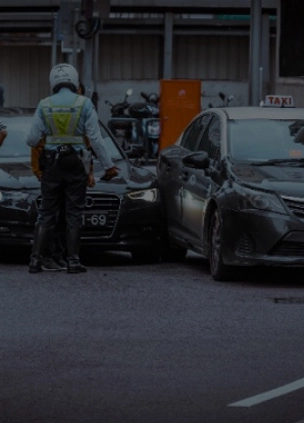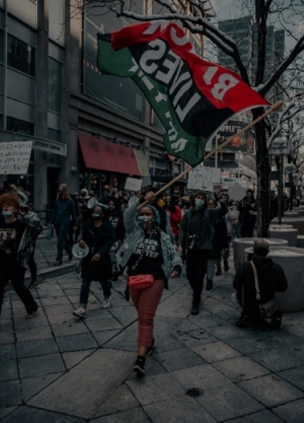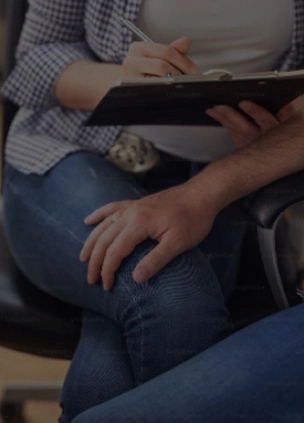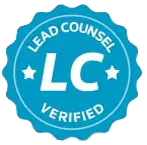One of a civil rights lawyer’s most critical duties is to keep you informed of your legal rights and to help you take the most direct actions available to protect them.
Many times, a violation of your civil rights can lead to significant damages, such as when an overzealous law enforcement officer inflicts an injury through excessive force or when a discriminatory firing leads to a devastating loss of income and benefits.
Defending your civil rights means more than just recouping the damages you have suffered. It can also mean having court-ordered protections — or other actions — issued that compel the party that violated your rights to finally commit to the legal, moral, and ethical course of action.
Your victory through a settlement or favorable jury verdict also sends a strong message to others, communicating that they have rights and protections that also deserve to be recognized and discouraging those who would otherwise bend the law to act in accordance with it.
The Personal Injury Lawyers ™ is committed to helping you find justice and hold those in power accountable to the letter of the law.
Don’t let anyone intimidate you into thinking you don’t have rights. Speak to an attorney who can assess your situation and help you determine the best path forward.
You can speak to an experienced civil rights lawyer and learn more about your case options when you call (312) 999-9990 or contact us online.
Cases a Civil Rights Attorney Will Typically Handle
Your civil rights refer to legal protections you have to conduct certain actions without fear of harm, as well as protection you have to not be harmed or harassed in ways that go outside the bounds of legal conduct.
Some civil rights cases involve criminal violations, but others involve acts with purely civil implications. Depending on the outcome of the case, you may agree to a settlement that includes repayment of your damages and, potentially, some contractual language designed to rectify the situation in question while preventing further harm.
Other times, your case may depend on the outcome of a trial. Winning a favorable jury verdict can mean restitution of damages in addition to an order for the defending party to take certain actions, such as taking measures to prevent further incidents like yours from happening in the future.
Every civil rights violation has the potential to alter your life for the worse. Any time you feel like you have been treated unethically, harmed without cause, harassed, or discriminated against, that’s when it’s time to reach out to an experienced attorney who can fight for your civil rights.
Some of the most common examples of civil rights cases include the following:
- Police misconduct, including excessive use of force
- Workplace discrimination
- Wrongful termination
- Discrimination based on race, sexual orientation, or other status
- Sexual harassment
- Coercion, extortion, bribery, or terroristic threats
- First amendment violations
- Violations of due process
- Government misconduct and takings
Laws That Protect Your Civil Rights
There are a number of laws that are commonly cited in civil rights cases, many of which you’ve likely already heard of. These laws can form the “backbone” of your case, while other details like government code, policy books, and outcomes of prior cases can help you build out a strong and compelling set of facts.
Commonly cited civil rights protection laws include:
- The First Amendment protects you from unreasonable and discriminatory actions taken by government entities and other state and federally-backed organizations in response to your rightful speech, expression of religion, or association with certain ideologies.
- The Fourth Amendment protects you from illegal search and seizure as well as excessive use of force.
- The Fifth protects you from a failure to follow due process, meaning inappropriate handling of your matters by law enforcement or federal agencies like the Social Security Administration.
- The Fourteenth Amendment requires all States to follow federal laws in accordance with the recognition and protection of civil rights, especially when it comes to following due process.
- The Eight Amendment prohibits the use of “cruel and unusual punishment,” which can refer to excessive use of force, practices that unreasonably risk the safety and well-being of an individual (regardless of criminal status), and failure to recognize and tend to the medical needs of someone in federal or state care.
- Title VII of the Civil Rights Act guarantees protections against discriminatory acts on the basis of race, color, national origin, religion, and biological sex by employers, as well as from workplace discrimination based on age, medical diagnoses, and whether the individual is pregnant.
- Title I of the Americans With Disabilities Act (ADA) guarantees protections for private and public employees when it comes to employment opportunities and other critical matters.
Police Misconduct and Excessive Use of Force Attorney
Some of the common types of civil rights cases we see at The Personal Injury Lawyers ™ involve illicit acts conducted by law enforcement agencies. Founding attorney Robert S. Fakhouri has represented cases involving police officers pursuing minors in a deadly chase despite superior officers calling off the pursuit.
Common examples of law enforcement misconduct include:
- Illegal search and seizure
- Deliberate harassment
- False imprisonment/false arrest
- Wrongful conviction
- Improper handling of evidence
- Racial profiling
- Brutality and excessive use of force
- Dangerous actions committed beyond the scope of departmental/agency policy
- Arrest, detention, or enforcement action in connection with protected First Amendment speech or other rights
As we have seen in recent decades, bringing your story to light is often the first step in having your civil rights recognized. Police and other law enforcement agencies will often pressure you into thinking you are already a criminal and that you have no rights.
In truth, you always have rights, including after a conviction, but especially prior.
Law enforcement actions also don’t have carte blanche because they are governed by specific laws and policies. When actions step outside of these guard rails, such as in cases of due process violations or excessive use of force, law enforcement personnel are, themselves, subject to prosecution for the civil and criminal violations they have committed.
Discrimination and Harassment Attorney
From law enforcement agencies like U.S. Immigration and Customs Enforcement (ICE) to organizations like the Internal Revenue Service (IRS) or Social Security Administration (SSA), all individuals are entitled to fair, equal treatment in accordance with due process.
Yet, all too often, these individuals have their rights violated because of bias and other forms of discrimination. For example, having benefits improperly terminated or their use investigated without following proper procedure can constitute discrimination and harassment by the SSA.
Similarly, agents of ICE and other law enforcement entities like the Travel Safety Administration (TSA) are bound by rules for conduct and proper procedure. Showing up to your place of work or harassing you in an airport without any sort of justifying cause can constitute a violation of your civil rights.
Simply put, any time a state or federally funded agency is denying you opportunities and limiting your freedoms in an improper way, you may have a civil cause of action to hold them accountable.
Wrongful Termination and Workplace Discrimination
All workplaces are bound by Title VII of the Civil Rights Act and Title I of the ADA to give equal treatment and respect to all employees. Unfortunately, though, workers are often denied opportunities or improperly disciplined in connection with their protected status.
Individuals may be fired for expressing their First Amendment rights, for example, or because they wish to use their guaranteed Family and Medical Leave. Employees may also be forced to perform particular acts that go outside the scope of their job duties, especially in situations of sexual harassment and discriminatory treatment.
Regardless of whether the employee is fired for non-compliance or subjected to disciplinary action, their unfair treatment can constitute a violation of their civil rights — especially when it can be proven that other employees are not subject to the same treatment.
Government Takings
A “taking” is any improper seizure of an asset or loss of value of an asset created directly by the improper actions of a state or federal entity. Common examples include improper seizure and violation of use agreements, such as easements.
A taking can also involve certain regulations or government actions that reduce the value of property, for example, or the income-earning potential of a business.
In essence, any loss inflicted by the government because of a lack of due process or violation of civil rights can constitute a form of taking. Speak to an attorney if you have concerns that an action of a governmental organization led to a loss of value or depletion of assets in a way you feel has violated your civil rights.
Damages Available in a Civil Rights Case
The damages you are eligible to receive will depend on the nature of your injury — whether medical, financial, or a loss of ability to exercise your freedoms.
Some common forms of damages awarded include the following:
- Repayment of medical bills directly connected to negligence, excessive use of force, or other wrongful actions taken by the defendant
- Restoration of property seized by the defendant or compensation for the value of the asset in question if it has been destroyed or altered in some fashion
- Compensation for individual pain and suffering in connection to an improper curtailing of their rights, in proportion to the degree of loss of rights suffered and its impact on the person’s well-being
- Lost wages created through situations like false arrest or medical injury, which encompass all lost benefits and differences in earnings when compared to the period prior to the civil rights violation
- Compensation for other forms of restitution, like providing money for a plaintiff to purchase a vehicle after they were forced to move to a property located away from access to transit
- Punitive damages, which can only be awarded by a jury, can serve as a deterrent to others who may commit the same acts.
What Should I Do If I Feel My Civil Rights (Or a Loved One’s) Have Been Violated?
The steps you take in the wake of a possible civil rights violation matter greatly to the outcome of your case. Unfortunately, because of the wide range of possible scenarios, there is no easy “blanket” set of actions you can take to respond appropriately in all situations.
Instead, refer to a civil rights attorney near you as soon as possible after the violation has taken place. You can also take some of the actions below as appropriate to your individual situation.
Seek Medical Attention and Diagnosis If You Have Been Hurt
If you were injured as a result of improper governmental actions or other violations of your civil rights, the first step is always to get a full and proper diagnosis. You want to begin treating your condition as soon as possible.
You also want to establish a record of your diagnosis and treatment plan as close as possible to the date of the incident in question.
If the person who has been hurt is currently incarcerated, contact the jail or holding facility where they are being held to follow up on any medical care they have received. If you feel that they are being denied medical care, reach out to an attorney immediately so that they can take steps to help them receive care as soon as possible.
Report the Violation Through the Proper Channels
In order to file a civil rights claim or lawsuit, you will need to go through proper channels first in nearly all situations.
Unless you provide notice of a complaint or problem to the agency responsible for overseeing the situation you were involved in, in other words, you may not have the legal standing to file a claim.
Many times, you have a severely limited window to file such a report. In cases involving a possible injury at the hands of a government agency, you may have as little as 60–90 days to notify them.
Other cases, such as those involving police misconduct, have a more general window in which to file a report. Nevertheless, the earlier you begin the process of making your concerns known and your experience documented, the better your case’s chances of a favorable resolution.
You may need to research the appropriate agency or entity in which to file your complaint. For complaints regarding the conduct of Chicago Police employees, for example, you may need to file a complaint with the Civilian Office of Police Accountability (COPA).
Cases related to discrimination at the hands of a government employer may involve the U.S. Equal Employment Opportunity Commission (EEOC) or the U.S. Department of Health and Human Services (HHS).
Contacting a civil rights lawyer can help you file your report with the appropriate office(s) accurately, completely, and in a timely manner. It can also protect you from any follow-up actions that may involve an investigation or other inquiry into your personal matters.
Protect your rights and increase your chances of your case’s success by looking to the guidance of an experienced attorney.
Document as Much as You Can
Immediately start saving receipts and paperwork associated with the situation. Save all medical discharge papers and lab results, for example.
You can also record your own narrative of what happened. Contact any witnesses and ask if they are willing to make their own statements.
As you go about your schedule, continue to keep a record of your experiences. Make a particular note when an injury you have suffered in connection with your civil rights violation inhibits you, such as if you are forced to forego an activity you normally would participate in or when your pain is hard to endure.
Definitely keep track of all contact and attempted contact by all parties in connection to your matter. Their response may provide grounds for further complaints of harassment and violation of due process.
Speak to a Civil Rights Law Firm Who Wants to Fight for You
These cases are often complex, and the window of time to act can be quite short. Before you try to take on the powers that be alone, put an ally in your corner who has the legal experience, resources, and professional drive to stand up for your civil rights.
Call (312) 999-9990 or contact us online to schedule your free, confidential, no-obligation case evaluation with a civil rights lawyer today.
